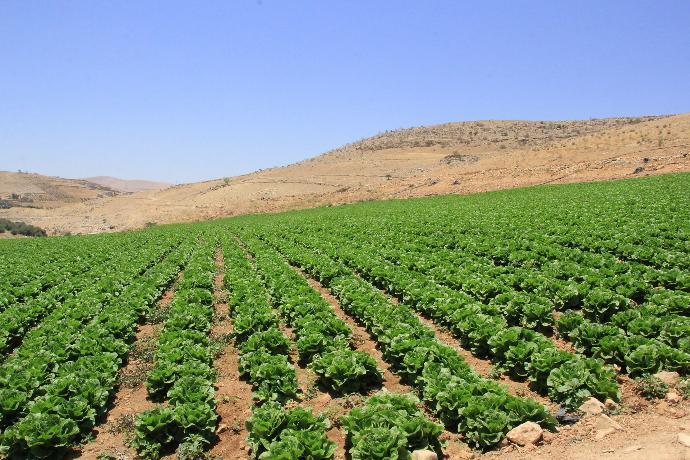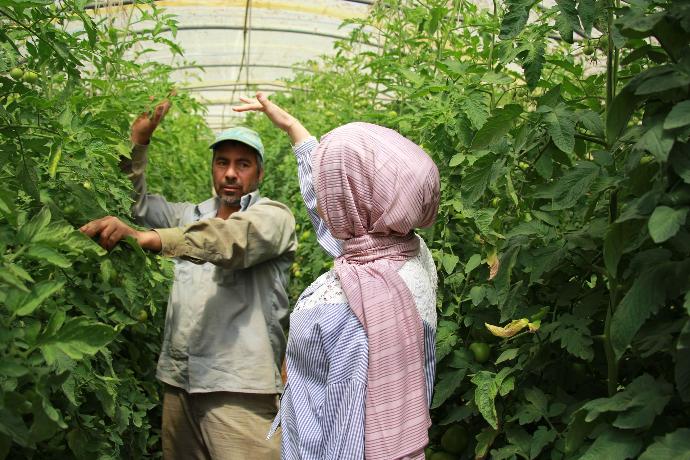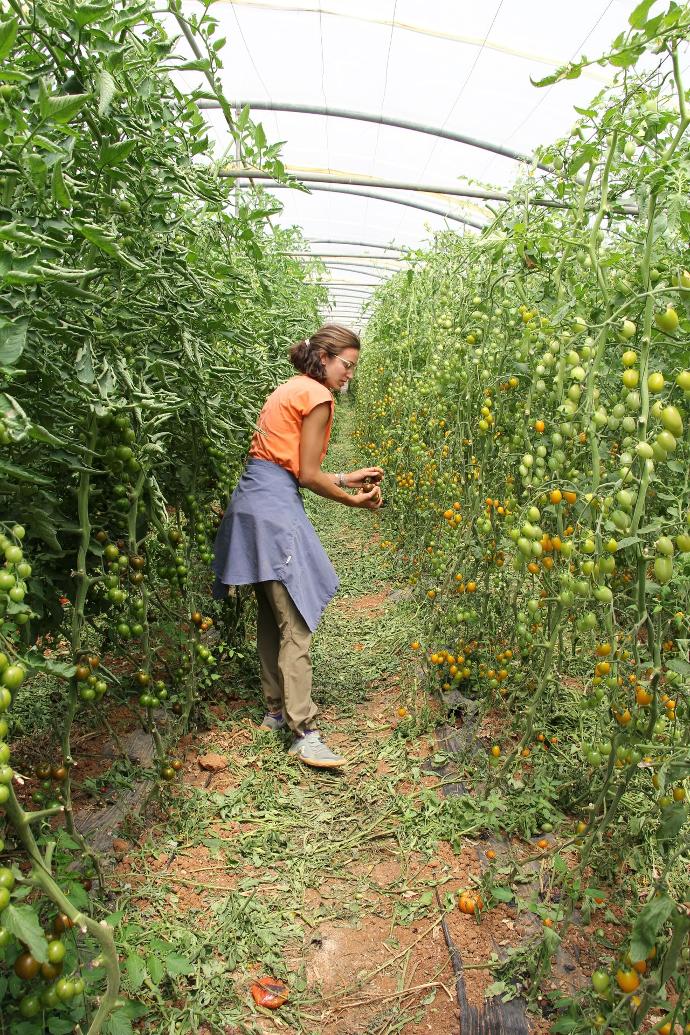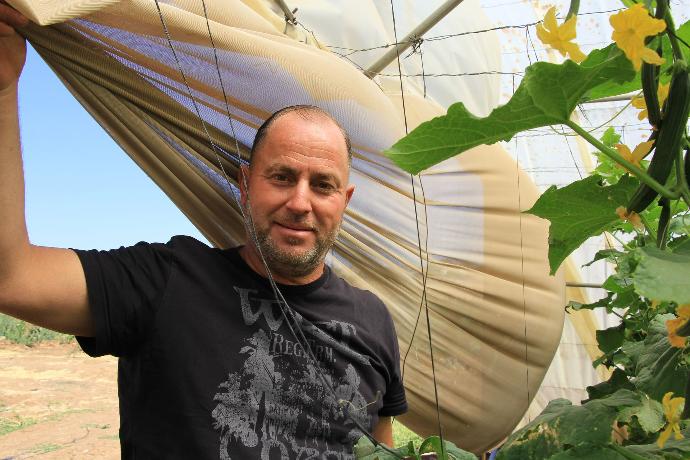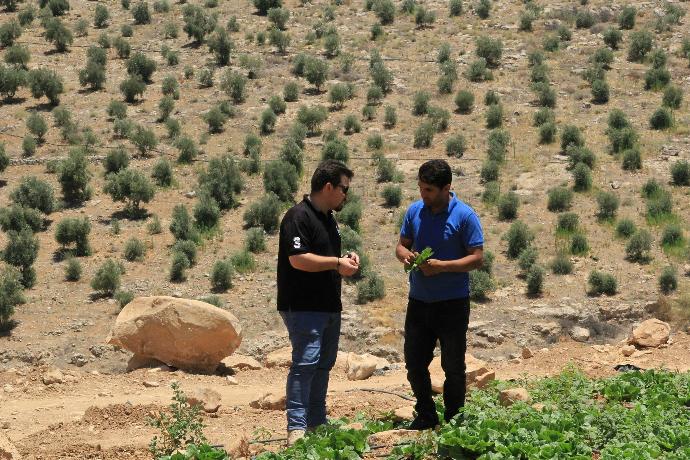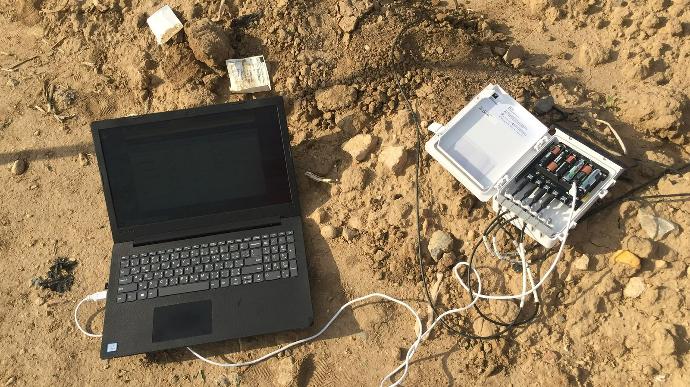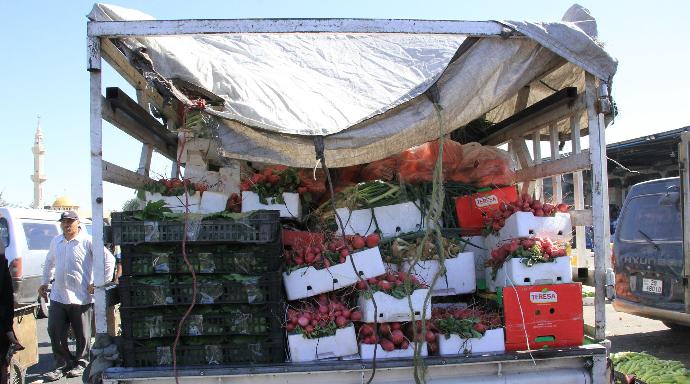Holland Horti Support Jordan
SUMMARY
Advance Consulting led a 3-year horticulture project in Jordan in collaboration with Wageningen University and the Dutch government, improving the competitiveness of Jordan farmers. Together with 72 lead farmers we piloted and demonstrated 10 horticultural innovations for 500+ farmers
to increase their profitability, reduce water use, and improve crop quality.
COUNTRY
Jordan
PERIOD
2019 - 2022
SECTOR
Agriculture
CHALLENGE
In 2018 the future of the Jordan horticulture
sector was at risk. As a result of ongoing
conflicts in the region, borders were
closed, making it impossible for traders
to travel by road. Farmers faced stricter
regulations for pesticide levels but did not
know how to reduce their pesticide use
without harvest loss. Prices were under
pressure; margins were low; and farmers were
in debt. Farmers did not have the
knowledge nor the resources to change
their farming and business practices from
survival mode towards resilience
SOLUTION
The 2018 report commissioned by the
Dutch government (“Horticulture in
Jordan: a sector in danger”) showed that
the Jordan horticulture sector would
benefit most from a practical, accessible
approach that prioritises the basics of
good farming: from the starting materials
such as seeds, water, and fertilizers, to
cultivation practices like fertigation, crop
protection, and post-harvest. Innovations
should be easy-to-use, low-tech, and
affordable. Advance Consulting was
requested to lead the pilot project
Holland Horti Support Jordan because of
its hands-on mindset and private sector
expertise.
RESULTS
The project design – initially export-focused – had to be revisited. There was
hardly any export possible, and distrust in
the sector impeded information exchange.
Advance needed to go back to basic:
improve production, be in the field with
the farmer, build a network, and create
trust. We developed 10 agricultural
innovations that responded to SME farmers’
real needs and helped them increase crop quality and productivity and at the same
time reduce the use of water and pesticides.
We are proud to have delivered concrete results:
- 10 seasonal pilot types with a business case
- 72 pilot farmers
- 124 separate on-farm pilots
- 512 scaling farmers who attended trainings and demonstrations
- 2 smartphone applications for crop protection
- First-ever public-private dialogue on the SME horticulture sector in Jordan resulting in a Whitepaper.
- Training of Trainers package for
everyone available
SUSTAINABILITY
Building on the lessons, pitfalls, and
networks from Holland Horti Support, we
developed a follow-up project to not only
scale the piloted solutions but also
strengthen them: by prioritising climate
awareness and local ownership from
the start.
Holland Horti Support II (2023 –
2027) has now taken off to further support the transition
towards a thriving horticulture sector in
Jordan.
“I had never heard of using an air blower for pollination before. A friend showed me a video and I immediately thought it was interesting. Mujeb is an organic farm and we don’t use any chemicals to make our plants grow. A blower helps pollinate in an almost natural way. It is a low-tech, low-cost tool and easy to use by our workers. The tomatoes turned out firm and tasty.
At Mujeb (which means ‘positive’) we prioritise flavour over yield. Food is incredible. It brings people together, it gives joy. For me, the challenge is to farm fully circular. Using manure from our chickens, reintroduce old tree species to feed the soil.”
Zeina Fakhreldin, Mujeb
Organic Farm
As a pilot farmer in Holland Horti Support Jordan,
Zeina Fakhreldin tested the air blower, trellising hooks, and integrated pest management on her farm.
